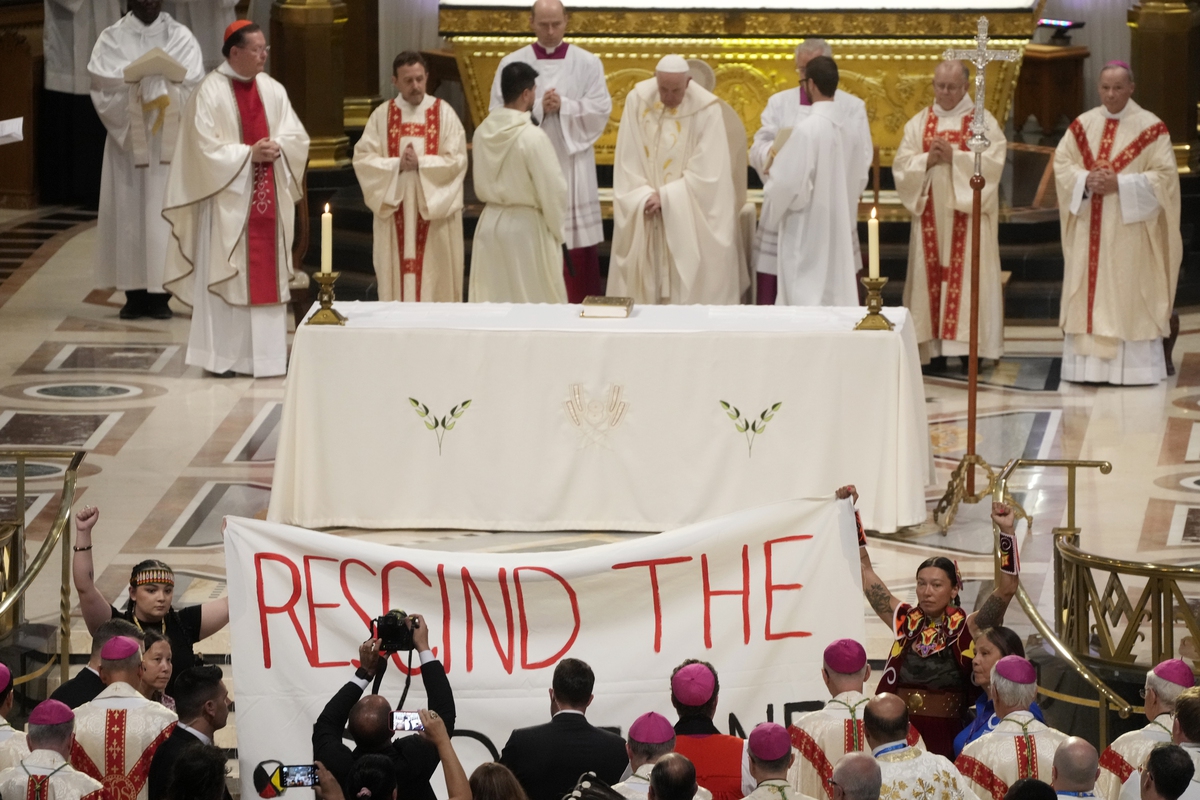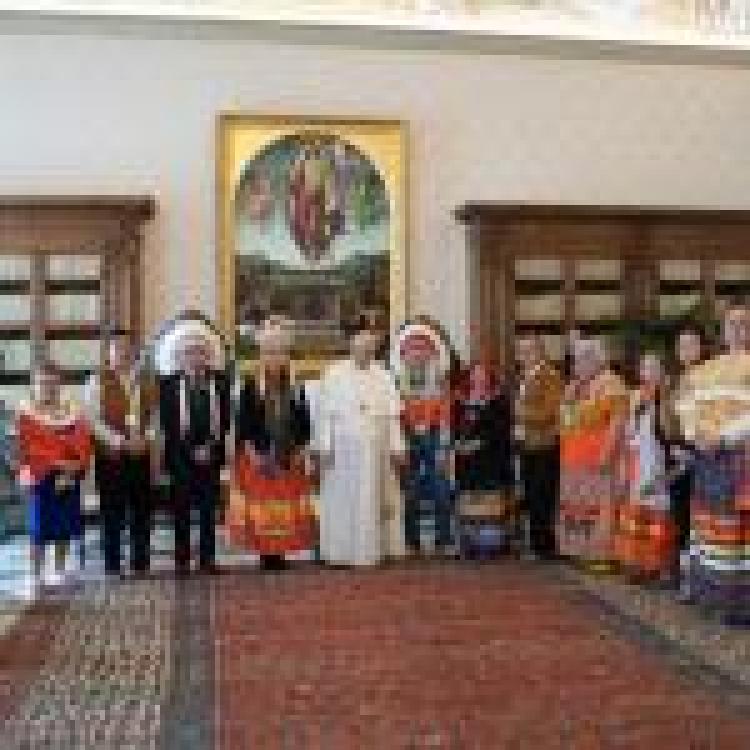Pope Francis apologised and asked for forgiveness from survivors of Canada's church-run schools, with commentators noting it did not go far enough to address historic abuses.
During his tour of Canada, touted as his "pilgrimage of penance" the widely anticipated apology was received during a visit to the community of Maskwacis, Alberta.
“I am sorry. I ask for forgiveness, in particular, for the ways in which many members of the church and of religious communities cooperated, not least through their indifference, in projects of cultural destruction and forced assimilation promoted by the governments of that time, which culminated in the system of residential schools,”
Francis said, telling nearly 2,000 survivors of the residential school system of his “indignation” and “shame” over the painful memory of the treatment of Indigenous children.
Over more than a century, Canada separated more than 150,000 indigenous children from their families and brought them to largely church-run residential schools where many were starved, beaten and sexually abused.
Some never returned home, a reality brought to the fore by the discoveries of more than 1,000 suspected unmarked graves at or near the sites of former residential schools last year.
However, some have noted that the Pope's apology fell short,
Murray Sinclair who chaired Canada's Truth and Reconciliation Commission criticised the pope's apology saying it placed the blame on individual members rather than acknowledging the full role of the church.
Activists also highlighted that the Pope should publically rescind the 1493 Papal Bull, that gave effect to the Doctrine of Discovery, essentially legalising the unjust taking of indigenous land around the world. European settlers in Canada used the doctrine to justify colonising land which was inhabited by indigenous people.
Read more at Reuters


